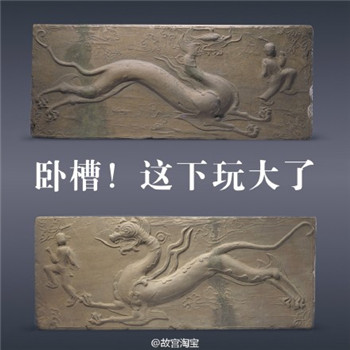(单词翻译:单击)
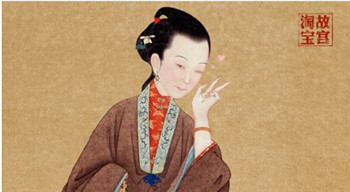
The Palace Museum is having fun with some artifacts again by releasing a series of light hearted emotions unearthed from its numerous cultural relics on its official Weibo account, and has captured the hearts of Internet users.
近日,故宫博物院再次成功通过花式卖萌吸人眼球,成为坊间热门讨论话题。印象中严肃的历史人物,雍正帝、鳌拜等集体卖萌;各种文物,雕像配上气泡问题也是搞笑十足。快来看一下它们是怎样脑洞大开,花式卖萌的吧。
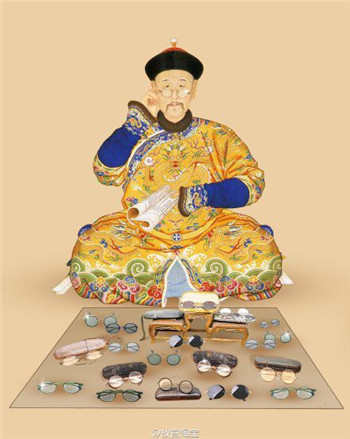
Gugong Taobao, a store opened by the museum on China's leading online market place Taobao, has published nine pictures of cultural relics with amusing captions, inviting Internet users to "enjoy non-typical sculpture relics of the museum."
故宫淘宝,开启了中国博物馆入驻网店的先河。而其官方微博@故宫淘宝 在近期发布了九张文物照片,每张都配上了奇葩的文字。让网友们了解一下不那么严肃的中国雕塑文化。
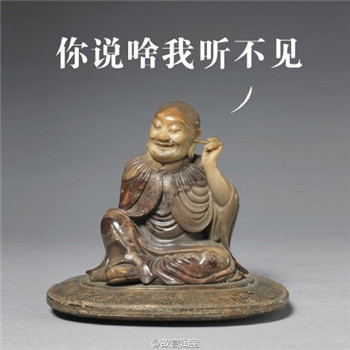
A sitting arhat, or perfected person, made during the Qing Dynasty (1644-1912), appears to be digging in his ear and smiling, with a caption reading: "I can't hear what you say."
清代的坐佛,似乎在边掏耳朵边笑,配字:你说啥我听不见!
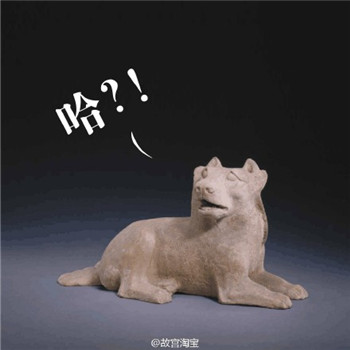
A crouching pottery dog with an open mouth made during the Eastern Han Dynasty (25-220 AD).
东汉时期用陶土做成的狗。
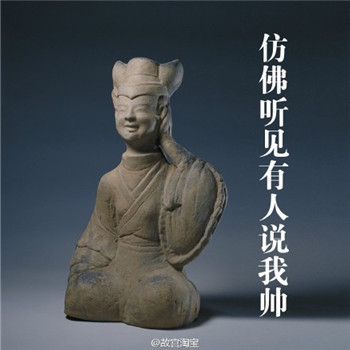
A pottery figure with his left hand holding his ear, also from the Eastern Han Dynasty.
同样是来自东汉的陶俑,嗯,挺帅。
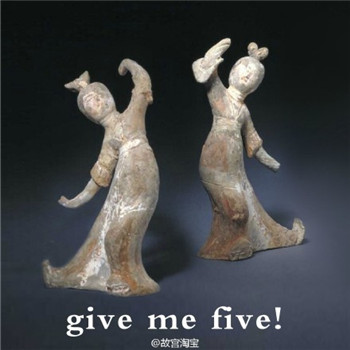
Two pottery palace dancers, each with one arm stretching upward, are captioned: "give me five."
两位跳舞的宫女,单个看起来没什么,可是这个神摆拍和神字幕让她们栩栩如生,满布跨文化神韵。
阅读提示:英文原文不完整,部分无对应英文,敬请谅解。
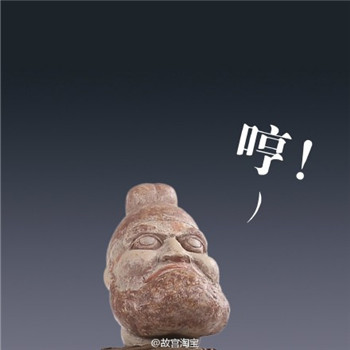
这表情有够奇葩,是吧。Ps:师出同门的“目瞪口呆”。
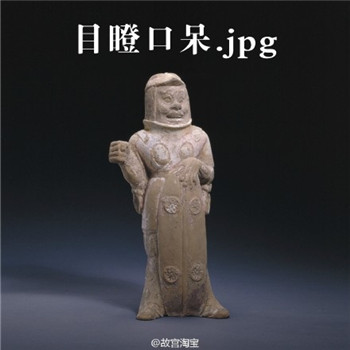
阅读提示:英文原文不完整,部分无对应英文,敬请谅解。
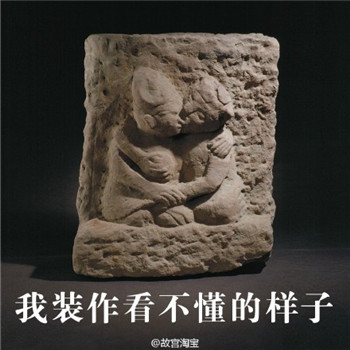
这个...少儿不宜。
阅读提示:英文原文不完整,部分无对应英文,敬请谅解。
好像叶公好龙的故事啊!
当干燥乏味的古文物,配上了可爱花哨的文字后,会不会让你感觉到焕然一新呢?
